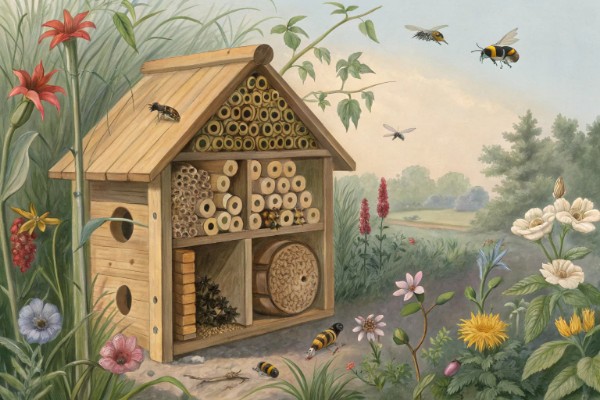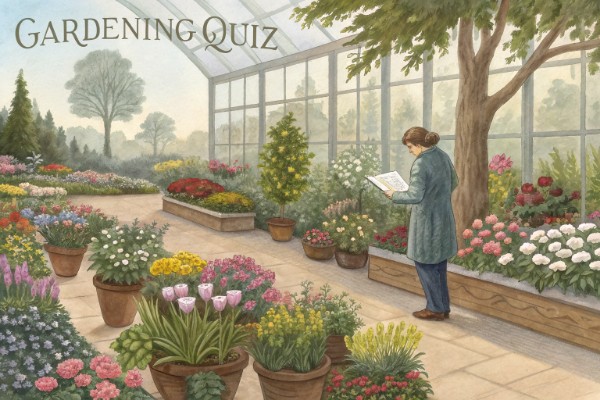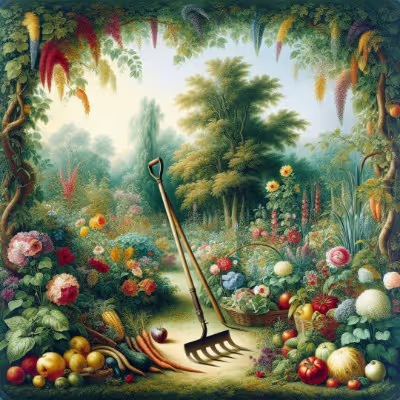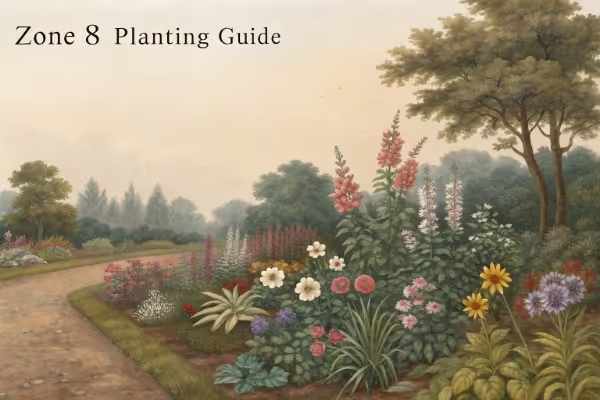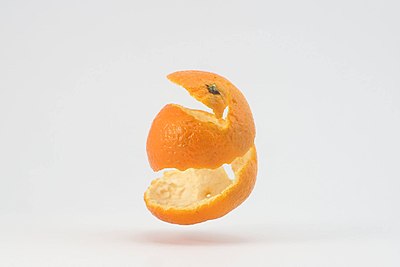Zone 2 Planting Guide: Plants That Thrive in Cool Climates
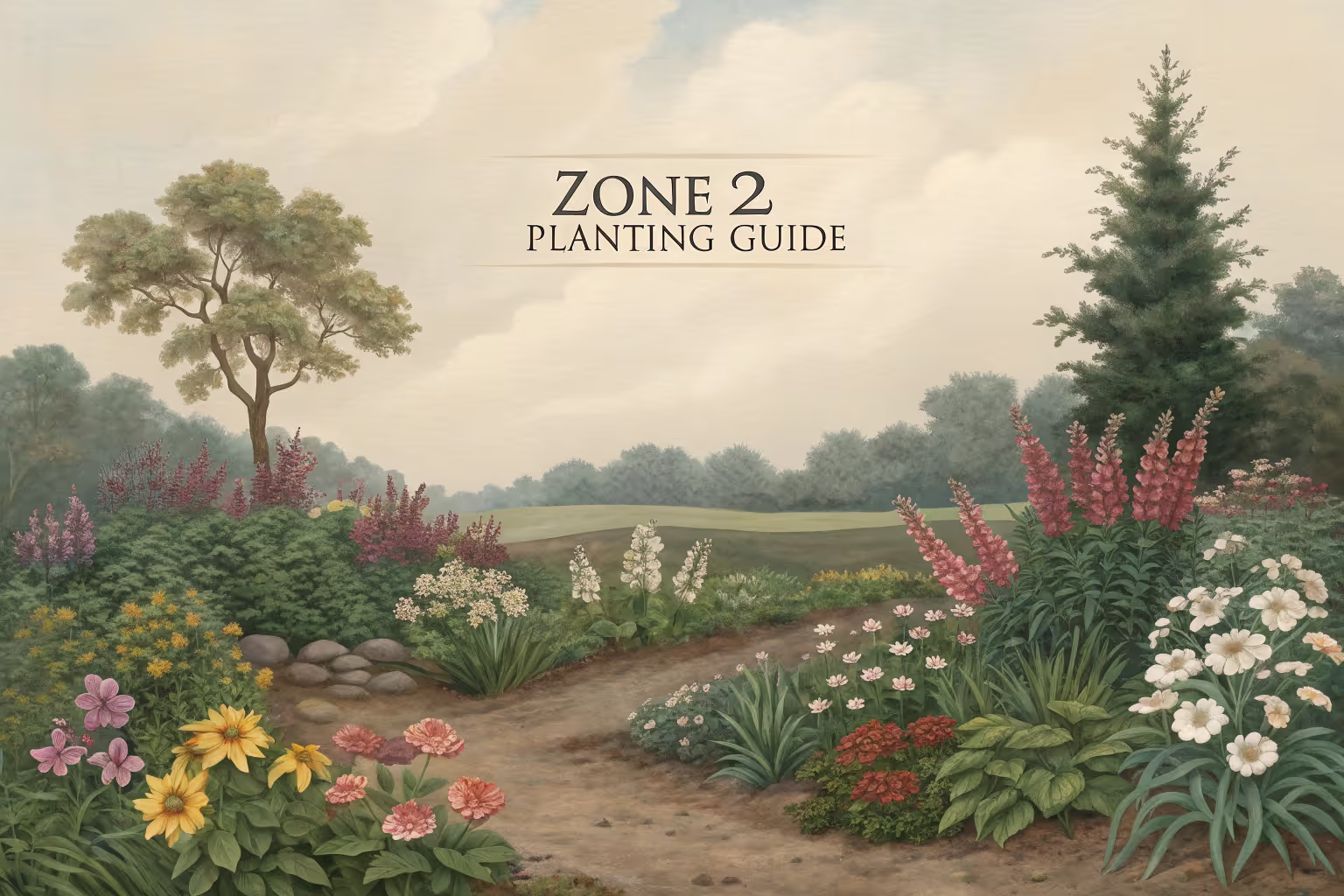
Zone 2 planting guide
This Zone 2 planting guide reveals how to grow thriving gardens in cold northern climates. Choose hardy perennials, resilient shrubs, and fast-growing veggies suited to short growing seasons. Use this Zone 2 planting guide to plan wisely, plant confidently, and harvest generously—even where winters bite hardest. Keep reading and discover surprising plant varieties that flourish in the far north.
Cheatsheet: Top Picks & Growing Tips for Zone 2
🌱 Plant Selection
- Berries: Haskap, lingonberry, currant, gooseberry, raspberry
- Vegetables: Kale, spinach, rutabaga, cabbage, peas, potatoes, parsnip, carrots
- Herbs: Chives, mint, lovage, sorrel
- Trees & Shrubs: Siberian pea shrub, dwarf birch, willow
- Flowers: Lupine, columbine, poppy, Icelandic poppy
🌡️ Planting Timing & Frost
- Soil warms late: Avg last frost May 25–June 10
- Start seeds indoors 6–8 weeks before last frost
- Transplant after soil is 50°F (10°C)
- Mulch: retain warmth, shield roots
- Growing season: 60–90 days
🛠️ Tools and Products You’ll Need
- Cold frames or heavy-duty row covers
- Compost or organic fertilizer
- Soil thermometer
- Drip irrigation or soaker hose
- Mulch (straw, wood chips)
- Sturdy garden trowel and gloves
🥦 Health & Nutrition
Kale & spinach: Highest vitamin C in cold-grown leaves.
Root veggies store up to 6+ months in cellars, boost food security.
📋 Steps to Success
- Test soil pH: Aim for 6.0–6.8; amend if needed.
- Start hardy seeds indoors; use grow lights for strong germination.
- Harden off plants by moving outdoors for 1–2 weeks pre-planting.
- Plant after danger of frost; cover with row cover for added warmth.
- Add mulch to insulate soil, suppress weeds.
- Water early AM, check moisture with soil thermometer.
- Harvest root crops after first light frost for richer flavor.
❄️ Stats & Fast Facts
- Zone 2: -50°F to -40°F (-45°C to -40°C) min temps
- Root vegetables yield 50+ lbs (22+ kg) in 50 sq ft
- Haskap berries contain 3x more antioxidants than blueberries
I garden where the thermometer reads -50 F to -40 F (-45.6 C to -40 C) in winter and the wind chews on bark like jerky. I learned to stop fighting the cold and start choreographing it.
Microclimate work carries the day. I stack heat with south-facing beds, dark mulch, stone borders, and snow fencing that traps a clean insulating drift over perennials.
Zone 2 breaks into 2a at -50 to -45 F (-45.6 to -42.8 C) and 2b at -45 to -40 F (-42.8 to -40 C). That rating reflects average annual minimum, not the whole story.
Wind chill does not freeze wood, but dry wind strips moisture and kills buds, so I plant windbreaks first and wrap trunks where winter sun scalds. I also watch soil temperature like a hawk, since roots wake near 40 F (4 C).
I lean on genetics from Siberia, the Canadian Prairies, and the boreal forest. These plants start early, bloom low to the ground, and laugh at late frost.
- Haskap Lonicera caerulea: thrives to about -55 F (-48 C), needs two distinct cultivars for pollination, ripens before strawberries, and packs sour blueberry flavor that mellows after a day on the counter.
- Saskatoon serviceberry Amelanchier alnifolia: Zone 2 hardy, dryland friendly, white spring bloom, and blueberry-meets-almond taste due to benzaldehyde in the seeds.
- Black and red currants Ribes nigrum and R. rubrum: flower early yet handle frost, fruit in shade, and make syrup that brightens winter yogurt when fresh fruit is a rumor.
- Gooseberries Ribes uva-crispa: thorny but reliable, great under open spruce where snow lingers late.
- Lingonberry Vaccinium vitis-idaea: evergreen mat, acidic soil, two crops in a long light summer, and bulletproof winter structure under snow.
- Bush cherries Romance Series: Carmine Jewel and friends handle deep cold, self-fertile, tart and perfect for pies when the light lasts all night.
- Sea buckthorn Hippophae rhamnoides: windbreak and vitamin C bomb, thrives on poor soil with nitrogen-fixing roots, plant male and female or you get shade and no juice.
- Hardy apples on Antonovka: full-size roots ride out -40 F (-40 C), with cultivars like Parkland and Heyer 12 bred for short seasons.
I plant berries on slight rises for cold air drainage and save the toe of slopes for willows that drink the cold.
Short-season genetics and long light make magic. I have pulled a 9-pound cabbage in a 75-day window because the sun barely blinked in July.
- Leafy greens: spinach, lettuce, arugula, tatsoi, and mizuna germinate in 40 to 45 F (4 to 7 C) soil and taste sweeter after a light frost.
- Brassicas: napa, bok choy, kohlrabi, kale, and early broccoli types finish fast and shrug off 28 F (-2 C) nights under light fabric.
- Roots: radish, turnip, beet, carrot, and parsnip handle cold starts; I sow carrots in April soil at 40 F (4 C) and mulch after emergence.
- Peas: in at 35 to 45 F (2 to 7 C) soil with brushy pea sticks to catch brief sun and keep pods clean.
- Potatoes: set when soil hits 45 F (7 C), choose earlies under 70 days, hill with compost that warms in the light and feeds during rain.
- Beans and squash: use compact, earliest cultivars under low tunnels, plant when soil reaches 60 F (16 C), and vent as soon as bees knock.
I avoid long-season corn and melons unless a high tunnel babysits them. Flavor beats bragging rights in August.
I favor plants that bank energy in crowns and bulbs. Snow behaves like a quilt if you help it settle clean and deep.
- Peonies Paeonia lactiflora and hybrids: flower like fireworks after deep chill, clump for decades, and ignore cold spring snaps.
- Delphinium: old-school border spikes, rabbit candy, and perfect with birch trunks and blue light at midnight.
- Asiatic and martagon lilies: bulbs sit deep, emerge fast, and handle late frosts with barely a flinch.
- Siberian iris: roots grip wet clay, bloom as the ground finally loosens, and the foliage stays tidy.
- Pulsatilla pasqueflower: hairy buds that push through slush and feed the earliest native pollinators.
- Bergenia: leathery leaves that blush wine-red in cold and give texture long after petals fall.
- Artemisia and sedum: silver foliage, drought tolerance, and clean bones in winter.
I plant shelterbelts first, crops second. Calm air keeps buds alive and soil warmer.
- White spruce and Siberian larch: fast early growth, good snow capture, and the right porosity to slow wind without creating turbulence.
- Paper birch and aspen: quick canopy and dappled shade that lets currants and peonies coexist.
- Willow hedges: thirsty ditch-tamers that feed bees in the first warm spell.
I stagger two to three rows, 30 to 50 percent porous, with outer rows lower to stack drifts where I want insulation. I leave openings for cold air to drain downhill at night.
Raised beds win in Zone 2. They warm faster, shed spring melt, and give roots oxygen after a winter of ice lenses.
I go 8 to 12 inches high with insulated sides in the windiest spots. I blend compost, coarse sand, and mineral topsoil, then cap with dark mulch that grabs light in May.
I preheat beds with clear plastic for two weeks. A $10 soil thermometer saves more crops than any gadget in my shed.
Low tunnels, cold frames, and row covers are my cash cows. I pick the lightest fabric that does the job, then vent like a short-order cook on a hot line.
- Frost cloth: 0.5 to 0.9 oz per sq yd adds about 2 to 4 F (1 to 2 C); double it for radiative frost and keep it off foliage with hoops.
- Low tunnels: 9-gauge wire or EMT conduit hoops, 4 to 5 feet apart, with clear poly early and spunbond in midsummer against flea beetles.
- Cold frames: 6 or 8 mm twinwall polycarbonate lids shed snow and hold heat; prop them open if the sun starts to cook greens at 50 F (10 C).
- Thermal mass: black water barrels or stone paths smooth night swings and help avoid condensation freeze on leaves.
I set an alarm for evening checks. One missed vent in a hot June sun can undo a week of careful timing.
Zone 2 often gives 45 to 80 frost-free days, but the summer day length turns plants into sprinters. I start indoors under lights at 16 to 18 hours, then harden off in wind, not just shade.
Peas and spinach go in as soon as soil holds 40 F (4 C). Beans wait for 60 F (16 C), and brassicas hit the beds two weeks before last frost with fabric ready.
Cold roots sip, they do not gulp. I water deep and infrequent, which trains roots to chase moisture and steadies flavor.
I feed with compost and a low-nitrogen, higher potash blend in midsummer for fruiting crops. No late-season high-nitrogen pushes that invite tender growth before a September bite.
Before freeze-up I give evergreens a slow soak and mulch crowns 4 to 6 inches with clean straw once the ground is frozen. Mulch early and you feed voles, mulch late and you tuck plants in for real winter.
Snow protects crowns and hides trouble. Voles travel under the white roof like it is a subway.
I use snap traps in protected tunnels in fall and keep grass shaved short around beds. For moose and deer, I fence 8 feet high with two lines or a strongly braced single perimeter and skip scented tricks that fail after the first real storm.
Cold nights push sugars and anthocyanins in greens and roots. That is why a frost-kissed kale salad tastes like it was seasoned in the field.
Long days let cabbage and kohlrabi bulk up fast without bitterness if water stays steady. I chase even moisture more than perfect fertilization in July.
- Fast salads: spinach, arugula, mizuna, claytonia, baby kale.
- Bulletproof roots: radish, turnip, carrot, beet, early potato.
- Cold-frame stars: lettuce, bok choy, scallions, kohlrabi.
- Backbone perennials: peony, delphinium, Asiatic lily, Siberian iris, sedum.
- Shelter and structure: white spruce, Siberian larch, willow, paper birch.
- Berries with attitude: haskap, currant, gooseberry, lingonberry, serviceberry.
- Hedges that feed: sea buckthorn, aronia with shelter, rugosa rose where soil is lean.
- Pollinator fuel: pulsatilla in spring, chive flowers in early summer, monarda where Zone 3 creeps in.
I read seed packets like invoices. In Zone 2 I filter for days to maturity under 70 for most crops or 80 for cabbage and potatoes, and I favor determinate habits for tomatoes under cover.
- Choose fruit trees on cold-hardy rootstocks like Antonovka for apples and ask the nursery for recorded winter lows at their trial sites.
- Buy row cover by weight with UV stabilization and get extra width to clip without stretching.
- Pick twinwall polycarbonate 6 to 8 mm for cold frames and 8 to 10 mm for small greenhouses to balance light and R-value.
- Use a soil thermometer and a simple data logger to time sowings by temperature instead of dates, since spring calendars lie in Zone 2.
- Order bare-root stock for spring delivery, then heel in if the soil lags, rather than potting up and weakening roots indoors.
I also ask breeders where their lines were selected. Prairie and boreal trials beat catalog poetry every time.
On the first day my shovel slides in without clanging, I sow peas and spinach and set a cold frame to preheat the night bed. On the night the birch buds go green, I transplant brassicas under fabric and lay slug traps.
On the first mosquito, I sow beans and set the vents on a timer. Local phenology beats ten-day forecasts.
I pre-sprout peas and parsnips on damp paper at 40 F (4 C) for three days, then sow with tweezers so I do not waste warmed soil. I dust brassica transplants with a pinch of mycorrhizal inoculant to help roots perform in 45 F (7 C) beds.
I edge beds with black salvaged pavers to bank heat and melt snow early. I prune lower spruce branches to improve air flow without losing shelter.
I keep two things within reach in June. A stack of old bedsheets and a bin of clothespins solves surprise radiative frosts faster than any app.
I also leave a full watering can in the tunnel; a pre-dawn foliar rinse can save open blossoms from light ice if the sun hits fast after a clear night.
USDA Plant Hardiness Zone Map lists Zone 2 minimums as -50 to -40 F (-45.6 to -40 C), a baseline for plant selection.
University of Saskatchewan fruit program reports haskap tolerating winter lows near -47 C (-52.6 F) and flowering in cool springs with reliable set.
Guinness World Records credits a 138.25 lb (62.73 kg) cabbage grown in Alaska, a reminder that long summer light can trade time for size.
Alaska and prairie extension guides place many Zone 2 gardens at roughly 45 to 80 frost-free days, which is why days-to-maturity and soil temperature trump calendar dates.
Snow is insulation if it is clean and deep, so I keep fall beds tidy to avoid vole hotels. Windbreaks should be porous, not walls, for stable drifts and warmer nights.
Plant low, mulch late, vent early, and let the long light do the heavy lifting. Cold can be a tool if you set the stage and keep a hand on the vent rope.
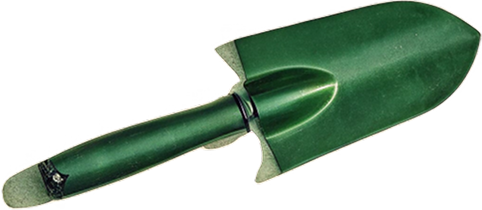
Want smarter plant choices? 🪴
Frequently Asked Questions for Cool Climate Gardening
What vegetables thrive best in Zone 2 climates?
Leafy greens like kale, spinach, and Swiss chard flourish abundantly in cool climates. Root vegetables such as carrots, radishes, and beets also thrive, diligently developing sweeter flavors as temperatures drop.
Can fruit trees survive and bear fruit in Zone 2 conditions?
Absolutely. Hardy fruit cultivars like certain varieties of apples, cherries, and plums proudly endure frigid winters and produce bountiful harvests. Select varieties bred explicitly for northern climates to ensure fruitful results.
How short is the growing season in Zone 2, and how can I extend it?
The growing season in Zone 2 is notoriously brief—typically around 90 frost-free days. To cleverly stretch this timeframe, employ techniques such as starting plants indoors, using cold frames, or deploying raised garden beds to keep soil warmth intact.
Do perennial flowers stand a chance in these colder temperatures?
Undeniably. Dependable perennials like columbines, Siberian irises, and lupines return reliably each season, lending vibrant hues and texture to the garden. Selecting hardy native varieties ensures a lasting, resilient display.
Is there a recommended time for starting seeds indoors for a Zone 2 garden?
Timing is your ally. For Zone 2 planting, begin sowing seeds indoors approximately 6–8 weeks before the anticipated last frost date. This head start provides seedlings with ample strength needed to withstand outdoor transplanting.
What's the most effective soil preparation method for Zone 2 planting?
Careful soil preparation can make the difference. Incorporate generous amounts of compost or aged manure to boost soil fertility and structure. Ensuring proper drainage and ample organic matter creates an inviting environment for plant roots to thrive amid harsher climates.
What protective measures are essential against harsh winters?
Garden protection is vital. Insulate perennial plants with a generous layer of organic mulch such as straw or bark chips. For young trees and shrubs, consider wrapping trunks with burlap or tree guards to safeguard against winter wind damage and hungry wildlife.
Growing in Zone 2 calls for patience and respect for the cold. But the rewards—hardy evergreens, resilient berries, and tough root crops—are worth every frostbitten finger. Stick to cold-hardy plants that shrug off spring snows and short summers. Remember, success here means picking winners from the start, using the right tools, and keeping your soil in fighting shape. If you’re eyeing other frigid regions, check out the Zone 3 planting guide for more ideas. This Zone 2 planting guide isn’t about chasing perfection—it’s about grit, smart choices, and letting nature show you what thrives. Keep it simple, work with the seasons, and you’ll carve out something beautiful, one short summer at a time.
Homesteader's Approach: Achieving Self-Sufficiency in Zone 2 Climates
Cold-Tolerant Veggies for Nutritional Independence
- Kale and Collards: Packed with Vitamin C, fiber, and minerals; survives frosts of 10°F (-12°C).
- Root Vegetables: Carrots, parsnips, rutabaga offer calories and essential nutrients; withstand soil temperatures down to 20°F (-6°C).
- Brassicas: Nutrient-dense broccoli and cabbage mature quickly, fitting into short growing seasons.
Practical Fruit Varieties to Cultivate in Zone 2
- Saskatoon Berries: Rich in antioxidants; tolerates -50°F (-45°C) winters.
- Sea Buckthorn: Vitamin-rich berry; endures extreme cold to -40°F (-40°C), supports immune health.
- Dwarf Apple Trees: Selected hardy cultivars produce abundant fruit at temperatures as low as -40°F (-40°C).
Techniques to Extend Short Growing Seasons
- Cold Frames: Affordable DIY solutions maintain soil warmth, extending plant life 4–6 weeks.
- Mulching Strategically: Thick straw or leaf mulch insulates root systems, preventing freeze-thaw damage.
- Raised Beds with Dark Soils: Dark compost-amended soils absorb heat, hastening early spring thaw.
Livestock Selection to Support Self-Sustenance
- Chickens: Heritage breeds (Wyandotte, Australorp) lay efficiently even in below-freezing conditions.
- Rabbits: Reliable protein source; thrive in insulated hutches through cold winters.
- Goats (small breeds): Provide dairy and meat, tolerating chilly climates if shelters are dry and draft-free.
Find out which plants will thrive in your garden!
Answer a few fun questions and get custom plant recommendations perfect for your space. Let’s grow something amazing together!

start your season
